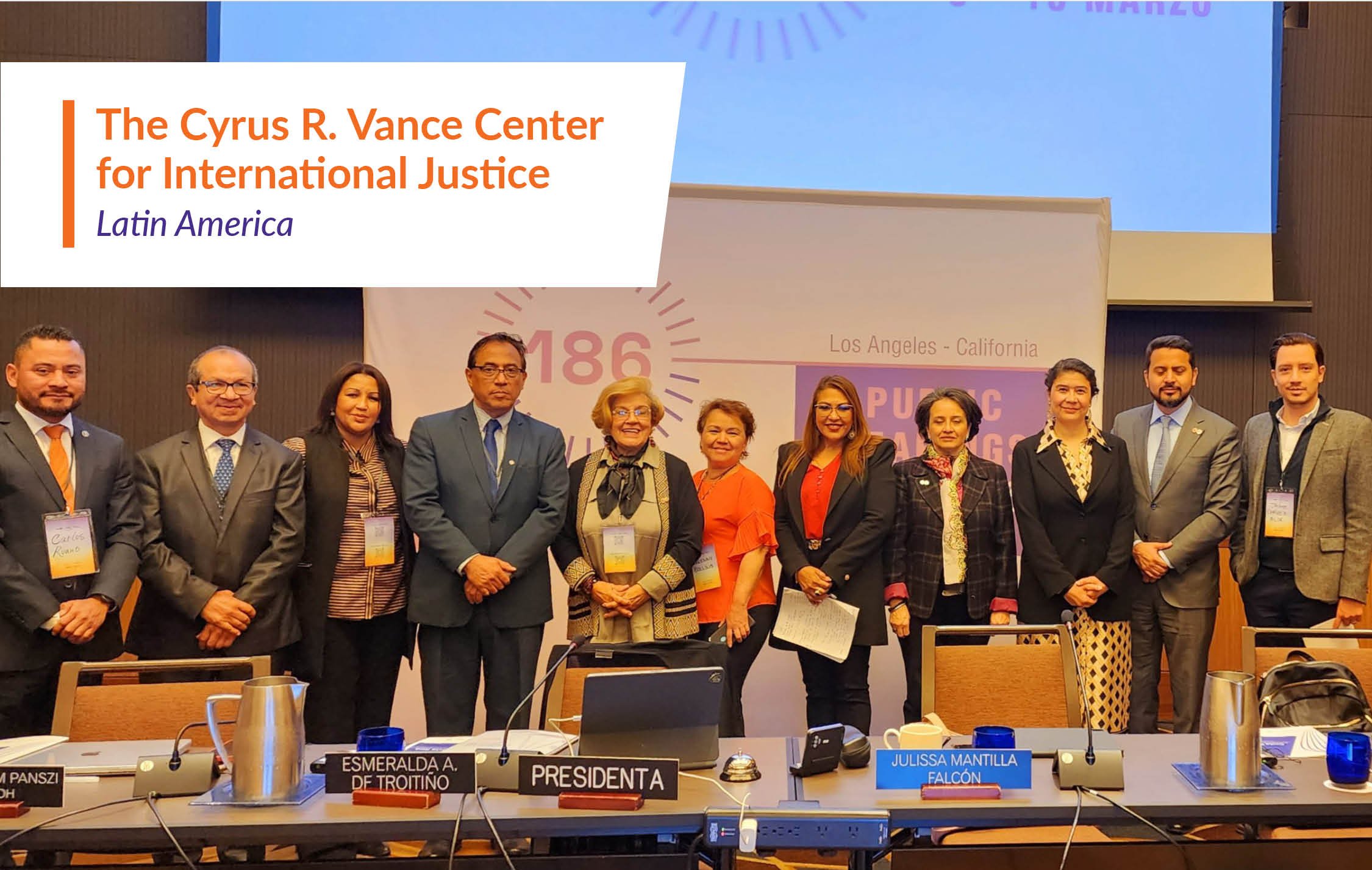Finalist
Justice Institutions
Judicial Reform
Transparency and Accountability
Share this
Contact information
https://www.vancecenter.org
Facebook
Instagram
X
YouTube
LinkedIn

Strengthening Judicial Independence and Integrity Through Judicial Associations and Legal Partnerships
The Problem
The judiciary is a key institution for protecting and advancing the rule of law, making it a target for corrupt actors striving to concentrate power and assert their will. These actors rely on varied tactics that damage public trust in institutions, limit the effectiveness of the judicial system, and erode access to justice. In Latin America, landmark efforts to combat emblematic corruption cases and develop independent, transparent, and ethical justice practices have too often been thwarted. Many countries are experiencing attacks on judicial independence, including overt actions like persecution and arrests of prosecutors and judges, as well as more subtle efforts to undermine judges like budget reductions and changes to retirement requirements. These threats warrant a response from the entire legal community, as they significantly impact the rule of law and fundamental rights. Until now, however, few other legal professionals have joined efforts to defend judges against these attacks.
The Approach
The Vance Center addresses threats to the independence, transparency, and integrity of Latin America’s judiciary by directly supporting independent judicial associations and their members. The project strengthens the associations' institutional capacities, advocacy and defense efforts, external communications, and regional and international networks. The Vance Center also engages its global network of legal professionals in this work, emphasizing their responsibility to uphold the rule of law and integrity of legal institutions.
Their activities include producing webinars, convenings, and publications on attacks against judicial independence, legal research, and guides on international legal standards to protect the judiciary, and assessments of judicial independence in 15 countries. In partnership with the Federación Centroamericana de Juezas y Jueces por la Democracia, Asociación Guatemalteca de Jueces por la Integridad, and others, they have hosted workshops on topics including defending judicial independence in the inter-American and universal human rights systems and international financial compliance. Their regional events have convened judges and lawyers from dozens of countries for open dialogue about threats and best practices, encouraging durable collaboration and roadmaps to confront shared obstacles. All activities are developed based on requests and input from judicial associations, ensuring effective, sustainable approaches to address corruption in the justice sector.
The Impact
-
Advanced the case of exiled Guatemalan judge Erika Aifán before the Inter-American Commission on Human Rights (IACHR). This included the addition of 13 exiled justice operators’ testimonies in 2023 and an expert report by a former UN Special Rapporteur.
-
Organized an IACHR hearing at which judges from six countries presented about attacks on judicial independence and called on the IACHR to engage with governments on these issues.
-
Produced 21 reports on judicial independence, which have been used for advocacy in 16 countries.
-
Hosted 25 events to share report findings and recommendations, attended by over 1,000 people.
-
The IACHR and UN Special Rapporteur on the Independence of Judges and Lawyers cite their work on specific country contexts.
-
Convened judges from 17 countries for cross-national conversations on judicial independence matters.
-
Produced a manual with 25 recommendations resulting from 2023 convenings, which received over 850 views.
The Future
The Vance Center’s future goals include organizing more workshops and producing new reports informed by the associations and CSO partners, enhancing public messaging around the associations’ activities and threats to judicial independence, increasing participation in regional activities and organizing events in the U.S. with exiled judges and prosecutors, and supporting the associations in recruiting younger judges.